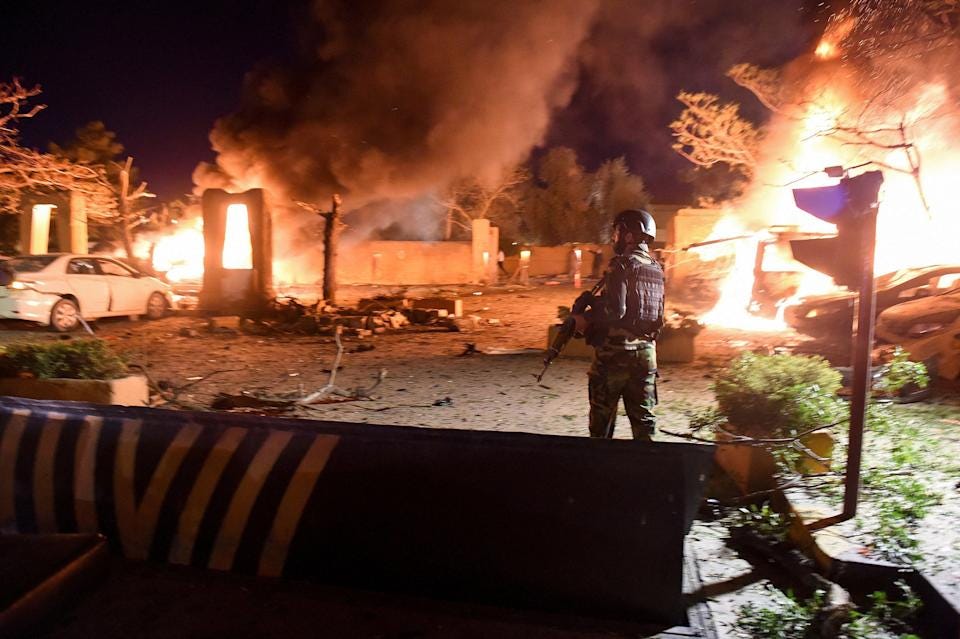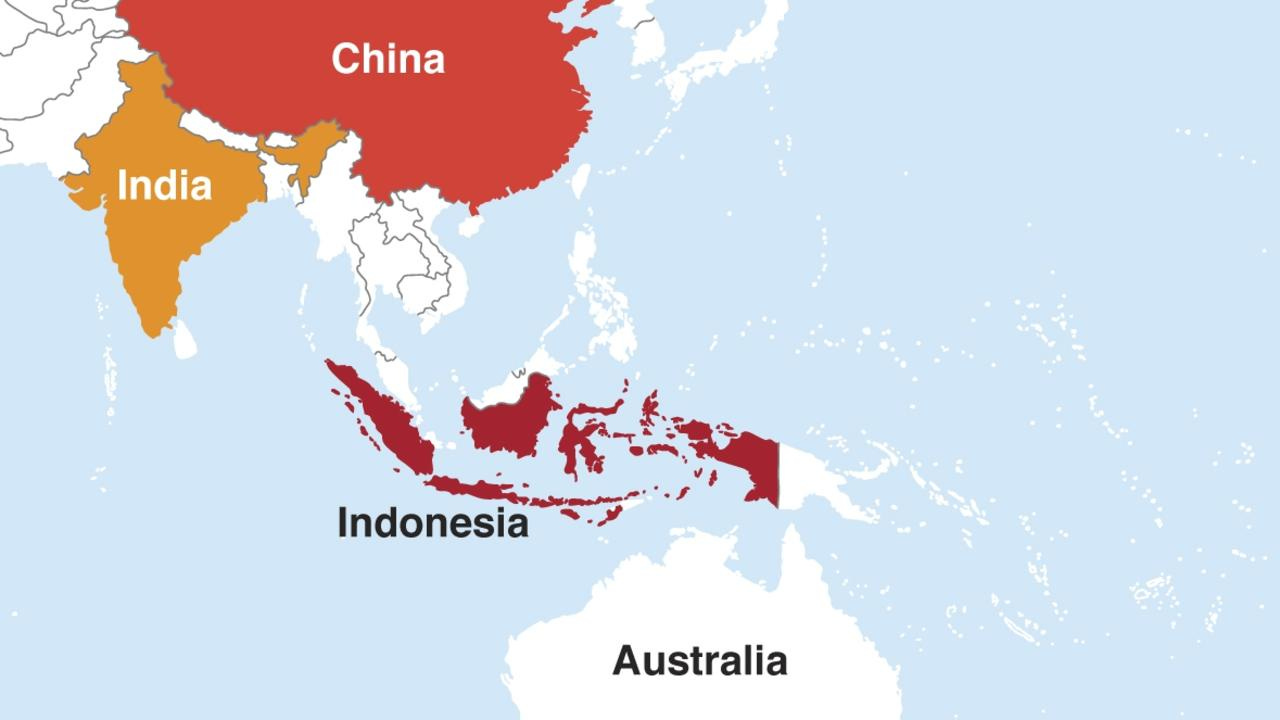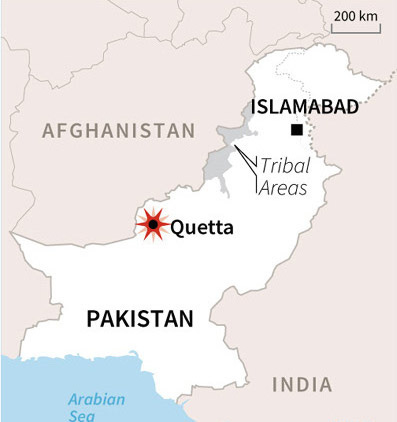Militant Activity in Indonesia and Pakistan Highlights China’s International Security Challenges
Two recent incidents illustrate the developing militant threat posed to Chinese nationals and foreign interests in Asia, namely a foiled plot to attack Chinese-owned businesses in Indonesia and a suicide vehicle bombing possibly targeting a Chinese diplomatic delegation in Pakistan. The jihadist response to China’s policies and growing international influence is a trend worth monitoring.
Indonesia Plot
In early April, the South China Morning Post (SCMP) reported on a series of counter-terrorism raids and suspect confessions following the recent Islamist attacks in Indonesia. The operations targeted supporters of the Islamic Defender Front (FPI), a banned religious organization, who allegedly plotted against Chinese-owned businesses, shops run by ethnically Chinese Indonesians, as well as police and military forces.
One of the detained described the anti-China attitudes shared by his Koranic study group:
“We had many discussions about the country being in a state where it was already controlled by China … industries being controlled by China … Finally, my friends … urged me to carry out bombings at Chinese industries located in Indonesia.”
A second suspect confessed his intent to bomb Chinese-owned businesses.
Researchers view these developments as part of a broader historical trend of domestic hostility toward ethnic Chinese-Indonesians (approximately 5% of the national population) and Chinese nationals. Jihadists have sought to leverage cultural tension, which, according to the Centre for Radicalism and Deradicalisation Studies (PAKAR), has only been exacerbated with the Covid-19 pandemic and associated economic downturn. Over the years, PAKAR has identified at least five plots targeting Chinese commercial assets and Chinese-Indonesians.
Indonesian Islamic State (IS) supporters have frequently threatened China, and the IS-linked perpetrator who stabbed former chief security minister Wiranto in 2019 had allegedly discussed attacking Chinese workers. More recently, in August of 2020, police arrested a group of Jemaah Islamiah members who were reportedly plotting to attack Chinese shop owners. The suspects are said to have selected the target over fears about communism spreading in the country.
The SCMP report claims extremists are “also angered by the repression of Uyghur Muslims in China and Myanmar’s Rohingya crisis.” PAKAR’s executive director Mohamad Adhe Bhakti adds, the Rohingya issue “somehow puts ethnic Indonesian-Chinese within the FPI’s sight, as the majority of them are Buddhists.”
Iwa Maulana, a researcher at the Center for Detention Studies in Jakarta, believes economic issues are fueling anti-Chinese sentiment:
“Those people in question have personal struggles like a difficult life, no earnings … and now they have a target, Chinese industries, which are framed as the source of their grievances.”
Pakistan Bombing
The Pakistani Taliban (known also as Tehrik-e-Taliban or TTP) conducted a suicide vehicle bombing at the Serena Hotel in Quetta, which killed five people and wounded at least 12 others. A Chinese delegation, led by ambassador Nong Rong, had been staying at the hotel but was not present at the time of the attack; the blast occurred mere minutes before the party was set to return.
The TTP claimed responsibility for the bombing through their Umar Media wing, though did not explicitly mention the Chinese diplomatic mission. In a preliminary statement, the group specified a meeting of “locals and foreigners” as the intended target, while the organization’s official release touted their martyr’s success in striking “police officers and other high ups,” thus confirming the “strong military leadership of Tehreek-e-Taliban Pakistan and its Intelligence might.” TTP spokesman Muhammad Khurasani concluded by accusing the media of misguiding “the nation by childishly hiding information on the type of attack and its target.”
The TTP’s inconsistent messaging in the wake of the bombing has raised questions about the strategic aims of the operation. It is unclear whether the Chinese delegation was, in fact, the intended target or if it was by mere coincidence they were checked into the hotel.
Tehreek-e-Taliban Pakistan has a history of anti-China rhetoric and has targeted Chinese nationals in the past. The group has framed China as an imperialistic and colonizing power, has criticized Islamabad’s relations with Beijing, and has lamented China’s domestic security policy in Xinjiang. They have also been known to host Uyghur militants belonging to the Turkestan Islamic Party (TIP) and al-Qaeda elements who are overtly hostile to Beijing.
Quetta, the location of the hotel car bombing, is the capital city of Bolochistan province — a region that contains a number of active jihadist and separatist militant groups.
Baloch and Sindhi militants have been most active in targeting Chinese nationals and interests in Balochistan, with an emphasis on the China-Pakistan Economic Corridor (CPEC), a signature component of Beijing’s Belt and Road Initiative (BRI). They view China as expansionist, a plunderer of the region’s natural resources, and a key supporter of the Pakistani government and military — narratives that sometimes appear in jihadist propaganda as well.







